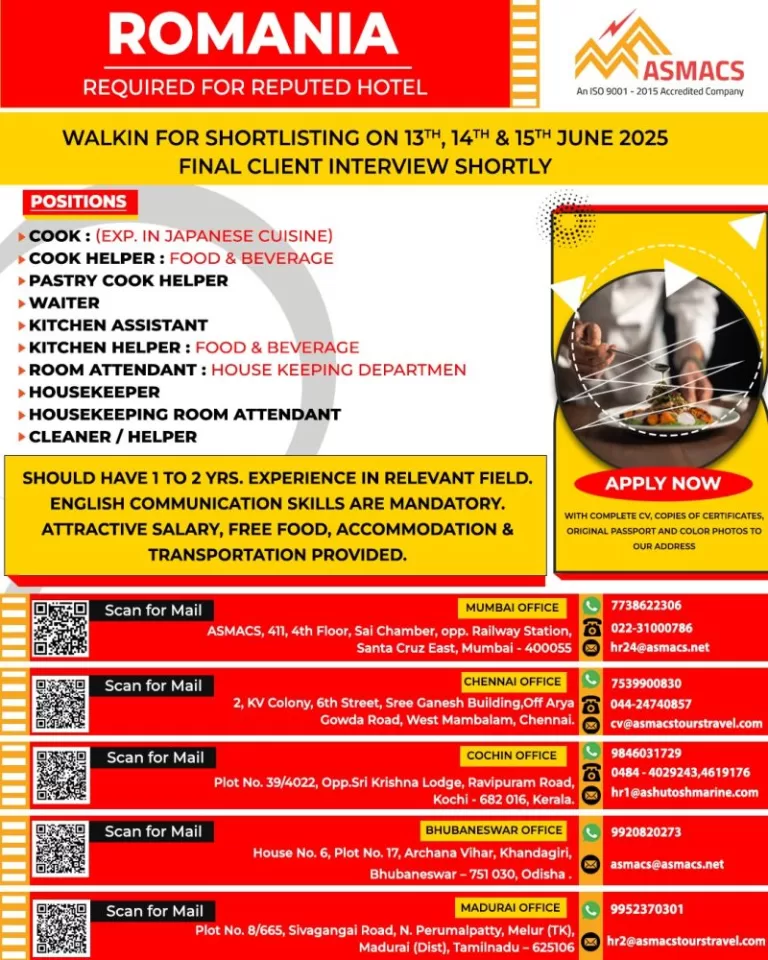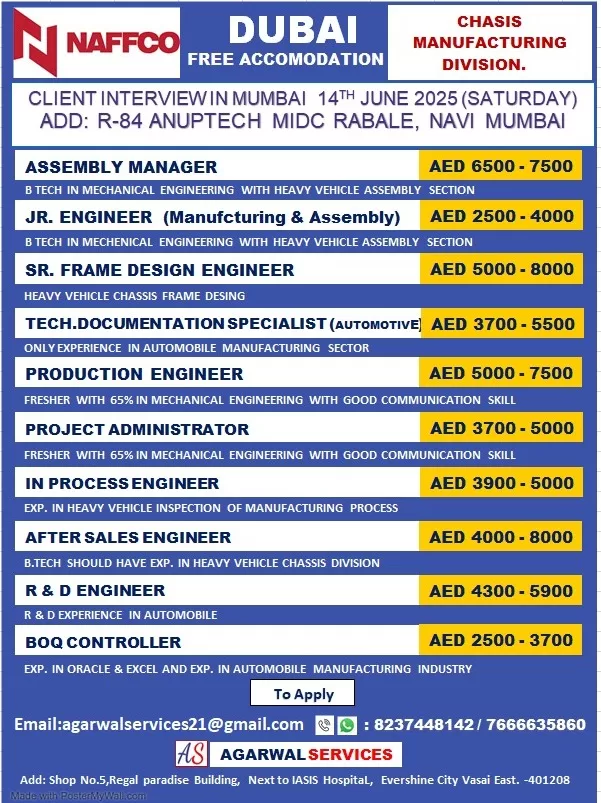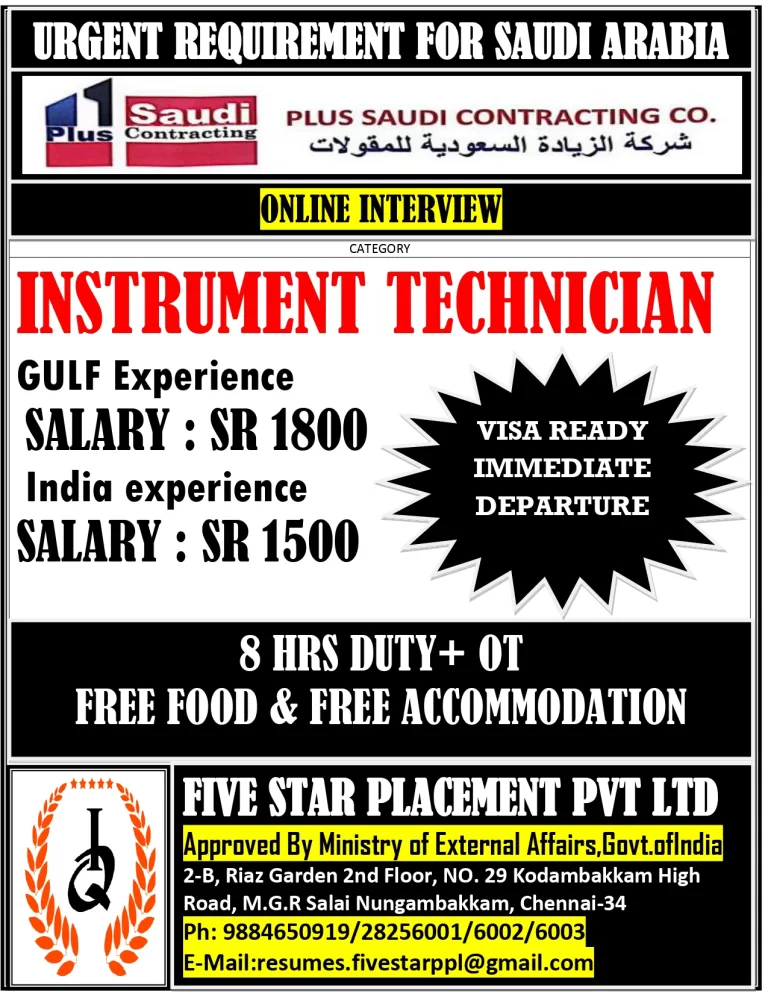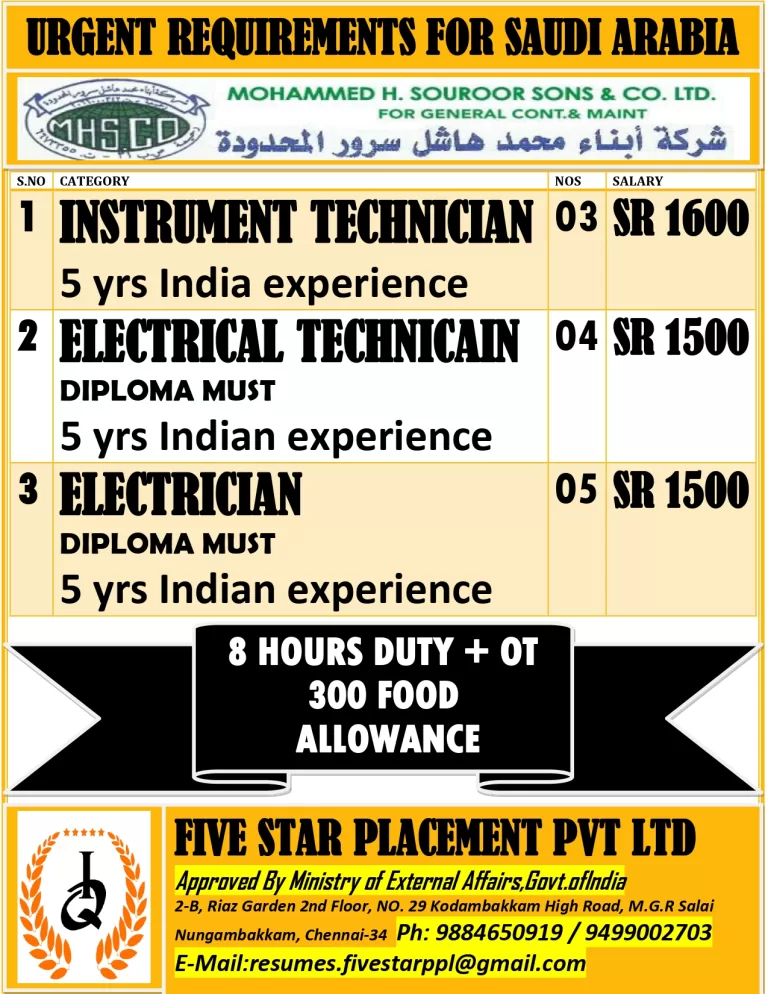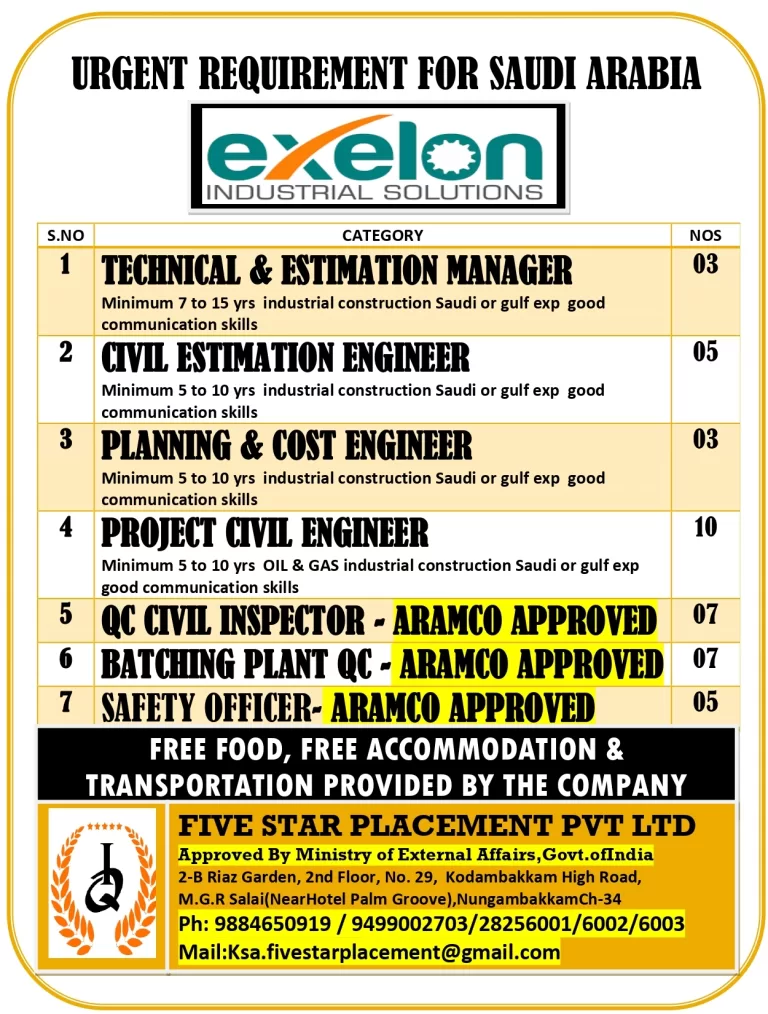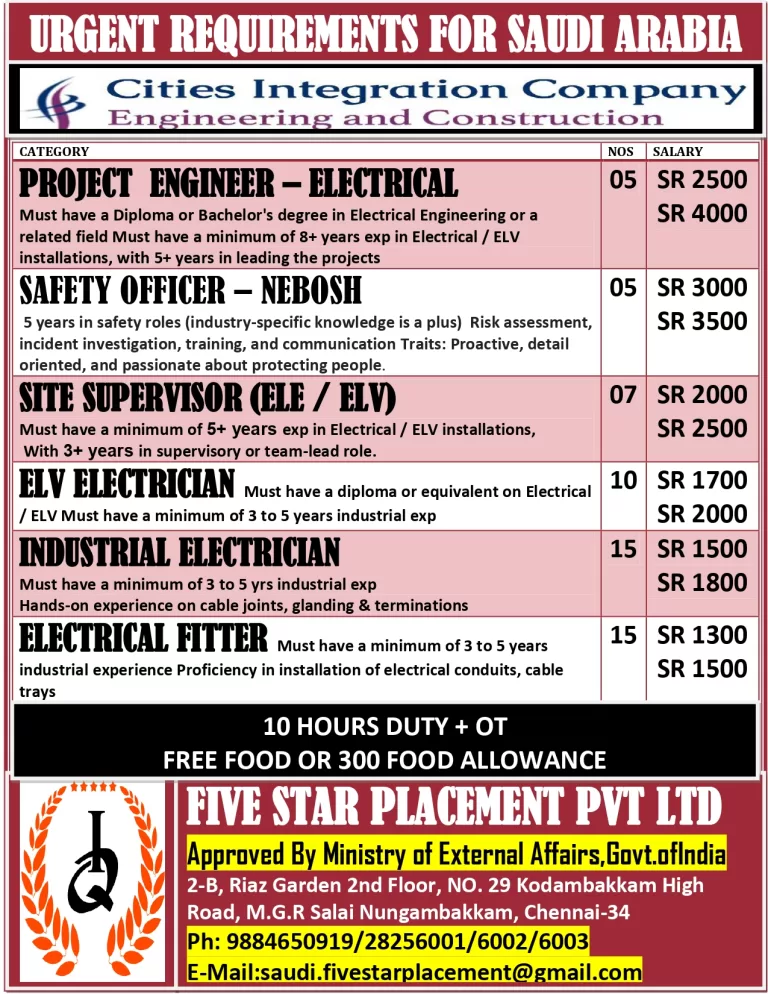Gulf Jobs: Your Gateway to Career Opportunities in the Middle East
Gulf Jobs The Gulf Cooperation Council (GCC) countries – Bahrain, Kuwait, Oman, Qatar, Saudi Arabia, and the United Arab Emirates (UAE) – represent a dynamic and attractive region for job seekers from around the globe. Known for their ambitious development visions, thriving economies, and diverse populations, these nations offer a wide array of career opportunities across various sectors.
Whether you are a seasoned professional or a fresh graduate, exploring the Gulf job market can open doors to new experiences, competitive salaries, and a high standard of living. This guide provides essential information to help you navigate the process of finding and securing a job in this vibrant region.
Why Consider Working in the Gulf?
The Gulf region offers numerous advantages for expatriate workers:
- Strong Economies: Driven by oil and gas, as well as significant diversification efforts, the GCC economies are robust and offer stable employment prospects.
- Competitive Salaries: Many roles in the Gulf come with attractive, often tax-free, salaries, allowing for greater savings potential.
- Career Growth: The rapid development and investment in various sectors create ample opportunities for professional advancement and skill development.
- Multicultural Environment: The large expatriate populations in GCC countries result in diverse and inclusive communities.
- High Quality of Life: Many Gulf cities offer modern infrastructure, world-class amenities, and a high standard of living.
Gulf Job Market Overview: Key Industries and Trends
The Gulf job market is constantly evolving, with significant investment in diversifying away from traditional oil-based economies. As of 2025, several sectors show particularly strong demand for skilled professionals:
- Technology & AI: With initiatives like Saudi Vision 2030 and UAE Centennial 2071 focusing on digital transformation and smart cities, there is high demand for skills in AI, machine learning, cybersecurity, software development, data science, and cloud computing.
- Construction and Real Estate: Mega-projects, infrastructure development, and continued real estate growth across the region fuel a consistent need for civil engineers, project managers, architects, and construction professionals.
- Healthcare & Pharmaceuticals: Growing populations and significant investments in healthcare infrastructure are driving demand for doctors, nurses, medical technicians, healthcare administrators, and pharmaceutical experts.
- Tourism & Hospitality: With increasing numbers of visitors and ongoing development of hotels, resorts, and entertainment venues, opportunities abound in hotel management, event planning, culinary arts, and customer service.
- Finance and Banking: Major financial hubs like Dubai and Abu Dhabi, along with growing financial sectors in other GCC countries, require professionals in accounting, auditing, investment banking, and financial analysis.
- Renewable Energy: As part of sustainability goals, there is increasing investment in solar, wind, and hydrogen energy projects, creating roles for renewable energy engineers and sustainability consultants.
- Education: The expanding education sector, from schools to universities, requires qualified teachers, administrators, and educational consultants.
Beyond these, other sectors like retail, logistics, aviation, and manufacturing also offer significant job opportunities.
Popular Destinations for Gulf Jobs
While opportunities exist across all GCC countries, some are particularly prominent job hubs:
- United Arab Emirates (UAE): Especially Dubai and Abu Dhabi, known for their diverse economies, global connectivity, and large expatriate communities. Strong sectors include tourism, real estate, finance, technology, and trade.
- Saudi Arabia: Under its Vision 2030, Saudi Arabia is undergoing massive economic and social transformation, creating vast opportunities in construction (mega-projects like NEOM), tourism, entertainment, healthcare, and technology.
- Qatar: A major player in the energy sector, Qatar also has growing opportunities in construction, tourism, and finance, particularly in Doha.
Other countries like Kuwait, Oman, and Bahrain also offer diverse job markets, often with strong opportunities in oil and gas, finance, and public administration.
How to Find Gulf Jobs
Finding a job in the Gulf requires a strategic approach. Here are some effective methods:
- Online Job Portals: Utilize popular regional and international job websites with a strong presence in the Gulf. Some of the leading platforms include:
- [suspicious link removed]
- Naukrigulf.com
- GulfTalent.com
- Indeed.com (Middle East/UAE versions)
- LinkedIn (actively used by recruiters in the region)
- Dubizzle (particularly strong in the UAE)
- Foundit Gulf (formerly Monster Gulf)
- Recruitment Agencies: Many specialized recruitment agencies focus on placing candidates in Gulf roles. Research and connect with reputable agencies that specialize in your industry.
- Networking: Leverage your professional network and attend industry events or online forums related to the Gulf region. LinkedIn is an excellent tool for connecting with professionals and recruiters.
- Company Websites: Directly check the careers sections of companies operating in the Gulf that align with your interests and skills.
- Job Fairs: Keep an eye out for virtual or in-person job fairs focused on the Middle East.
Visa and Work Permit Requirements | Gulf Jobs
To work legally in the Gulf, you will need a work visa and a residence permit. The process is typically initiated and sponsored by your employer. While the specifics vary slightly by country, the general process involves:
- Job Offer: Securing a formal job offer from a registered company in the GCC country.
- Entry Permit: The employer applies for an entry permit for you to enter the country for work purposes.
- Medical Examination: Upon arrival, you will undergo a medical fitness test at an authorized center.
- Labor Contract: Your employment contract is officially registered and attested by the relevant government authorities (e.g., Ministry of Human Resources and Emiratisation in the UAE, Ministry of Labor in Qatar).
- Residence Permit: Once the medical test is cleared and the labor contract is registered, the employer applies for your residence permit, which allows you to live and work in the country for the duration of your contract.
- Emirates ID (UAE): In the UAE, you will also need to apply for an Emirates ID card, which is a mandatory identification document.
Important Considerations:
- The employer is typically responsible for the costs associated with the visa and work permit process.
- Visa requirements and processes can change, so it’s crucial to verify the latest information with the official government websites of the respective GCC country or through your prospective employer.
- Some countries offer specific visas for job seekers or allow for status change from a visit visa under certain conditions.
Living in the Gulf: Culture and Lifestyle
The Gulf offers a unique blend of traditional Arabian culture and modern, cosmopolitan living. While each country has its distinct characteristics, some general aspects of life include:
- Culture: GCC countries are predominantly Muslim, and it is important to respect local customs and traditions, especially regarding dress code and public behavior, particularly during religious periods like Ramadan.
- Lifestyle: Major cities offer a high quality of life with excellent housing, healthcare, education, shopping, and entertainment options.
- Cost of Living: The cost of living varies depending on the city and your lifestyle. While some aspects like housing can be expensive in major hubs, the lack of income tax can offset these costs.
- Transportation: Cities have well-developed infrastructure, and taxis, ride-sharing services, and public transport are widely available.
- Weekends: The standard weekend in most GCC countries is Friday and Saturday.
Tips for Gulf Job Seekers
- Tailor Your Resume and Cover Letter: Highlight skills and experience relevant to the specific job and the Gulf market.
- Research the Company: Understand the company’s business, culture, and values before applying or interviewing.
- Be Aware of Cultural Nuances: Familiarize yourself with the business culture and communication styles in the Gulf.
- Prepare for Interviews: Be ready to discuss your qualifications, experience, and why you want to work in the Gulf.
- Understand the Offer: Carefully review the employment contract, including salary, benefits, accommodation allowances, and end-of-service benefits.
- Be Patient: The job search process can take time, so be persistent and patient.
Exploring job opportunities in the Gulf region can be a rewarding career move, offering professional growth, financial benefits, and the chance to experience a new culture. By understanding the market, utilizing the right resources, and preparing thoroughly, you can increase your chances of success in landing your desired Gulf job.









